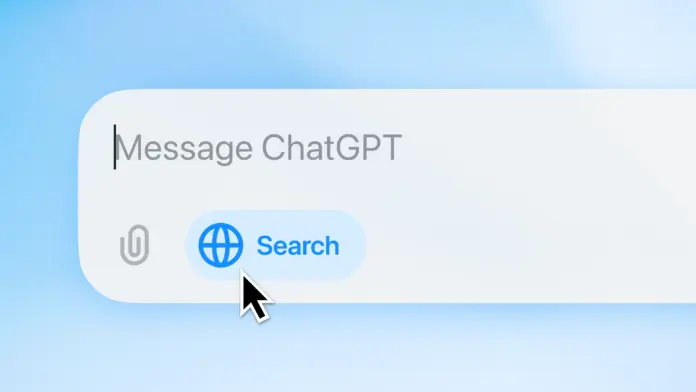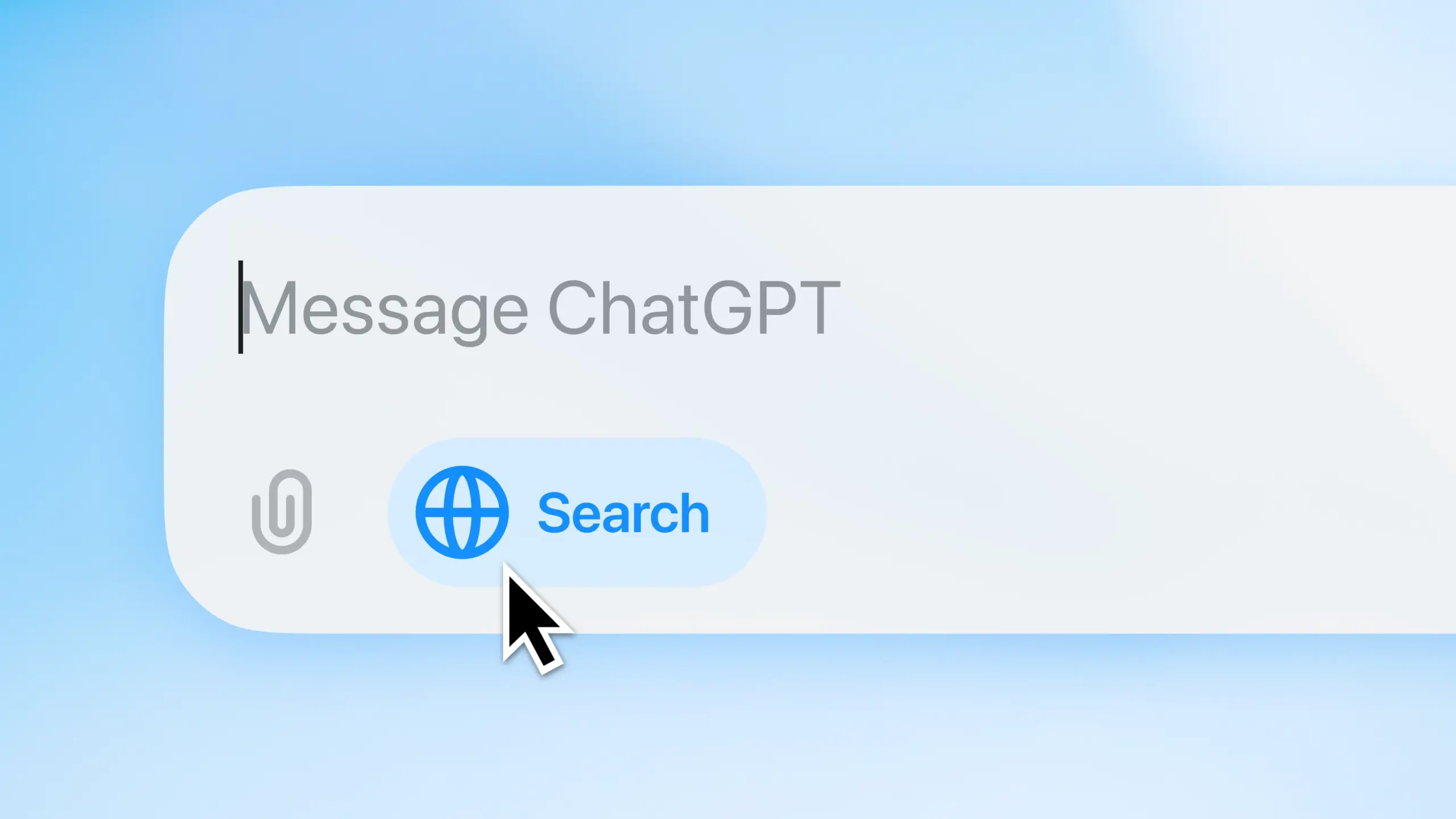Introduction: ChatGPT’s New Search Feature – A Revolutionary Leap in Online Search
In late 2024 (31 October 2024 to be precise), OpenAI introduced a search feature within ChatGPT, presenting a unique AI-powered approach to information retrieval that could challenge established players like Google and Bing. By integrating real-time web access directly into ChatGPT, users can now receive current, contextualized answers without ever leaving the interface. With a potential to redefine how we interact with search engines, the ChatGPT search feature is setting a new standard for online information.
Why ChatGPT’s Search Feature Stands Out
- Conversational AI Insights: ChatGPT’s search feature provides answers in natural, conversational language, enhancing user engagement and making complex queries easy to navigate.
- Efficient Information Access: Users can gather details from multiple reputable sources in a single response, reducing the need for multiple tabs and making it faster to gain accurate insights.
- Personalized Product and Shopping Suggestions: By connecting relevant product suggestions to search queries, ChatGPT has significant potential to become a major player in the e-commerce space.
The Impact of ChatGPT’s Search on the Search Landscape
1. A New Competitor for Traditional Search Engines
OpenAI’s ChatGPT introduces a unique conversational layer to search, focusing on user-friendly, answer-focused responses rather than a list of links. While search engines like Google and Bing emphasize displaying a comprehensive array of websites and resources, ChatGPT aims to provide immediate, context-driven answers, effectively positioning it as a competitive alternative to traditional search.
2. A New Tool for E-commerce Search
For e-commerce, ChatGPT can streamline product discovery by suggesting options and providing reviews and detailed product descriptions in the same conversational flow. This advantage gives it the potential to be a future powerhouse for users looking for quick, personalized shopping suggestions.
SEO Opportunities and Strategies in an AI-Driven Search Era
As AI-powered search tools grow, there are new SEO opportunities and challenges for businesses to consider:
- Focus on Conversational Keywords: Search queries in ChatGPT are typically more natural and context-specific, making it beneficial to optimize content with conversational keywords that mimic human speech.
- Prioritize Authority and Quality Content: ChatGPT uses reputable sources to generate responses, making it crucial for businesses to produce reliable, high-quality content that may be referenced by AI-driven searches.
- Highlight Product Details for E-commerce: Detailed product descriptions and customer reviews will become more important as ChatGPT enhances its e-commerce functionalities. Emphasize clear, informative content to improve visibility.
Pros and Cons of ChatGPT’s Search Feature
Benefits
- Immediate Responses: Provides concise answers without the need to browse multiple sites.
- Streamlined Research: Users can explore linked sources directly within the ChatGPT interface, making complex topics easier to research.
- Tailored Experience: ChatGPT personalizes responses based on individual user queries, making the experience highly interactive.
Limitations
- Limited Access: Currently available only for Plus and Enterprise users, which restricts its widespread use.
- Possible Inaccuracies: While ChatGPT aims for accuracy, some responses may need additional verification as AI’s interpretation can vary.
Comparison with Google and Bing: How ChatGPT Stands as a Potential Competitor
While ChatGPT’s search feature brings an innovative, conversational approach to search, here’s how it directly compares to traditional search engines like Google and Bing:
- Answer Format and Contextual Understanding
- ChatGPT: Delivers answers in conversational language, making it easier for users to grasp complex topics or complete research without navigating multiple links. It focuses on providing precise responses rather than an array of sites to explore.
- Google and Bing: Both display a list of search results, relying on users to click through links. Google and Bing’s featured snippets provide a similar experience but lack the conversational depth ChatGPT provides.
- Reliability and Source Verification
- ChatGPT: Citations from reputable sources are presented directly in the response, but AI-driven search may occasionally require users to cross-check facts. As ChatGPT’s partnerships with verified sources expand, its credibility and reliability are expected to improve.
- Google and Bing: Both utilize indexing algorithms and have well-established, authoritative content filters to display the most credible sources first, thanks to years of search engine optimization and web indexing.
- E-commerce Capabilities
- ChatGPT: Allows for conversational product recommendations, potentially offering an engaging shopping experience. As OpenAI builds its AI-based shopping functionalities, ChatGPT could become a valuable shopping assistant for personalized recommendations.
- Google and Bing: Google Shopping and Bing Product Ads currently dominate the e-commerce space, offering detailed product comparisons, reviews, and pricing options that cater to buyers in a way ChatGPT has yet to fully achieve.
- User Experience and Accessibility
- ChatGPT: Intuitive, chat-based interface makes it ideal for users looking for interactive search experiences. It is currently limited to paid users, but OpenAI is likely to expand access in future updates.
- Google and Bing: Both provide free, instant access and continue to dominate in terms of user volume and resources available. They cater to users seeking fast, direct answers without needing a conversational flow.
- Real-Time Updates and Integration
- ChatGPT: ChatGPT’s search feature can quickly fetch up-to-date information, which makes it ideal for real-time updates on news, product releases, and general information.
- Google and Bing: As traditional search engines, both have comprehensive, real-time updating systems that allow users to access the latest data and news immediately.
Conclusion: A Shift Towards AI-Powered Search
OpenAI’s ChatGPT search feature represents a major shift towards AI-powered search tools that prioritize conversational interfaces and real-time accuracy. By competing directly with Google and Bing on both e-commerce and general information searches, ChatGPT provides an alternative that appeals to users looking for simplified, context-rich answers. As AI search continues to advance, businesses can benefit by focusing on high-quality, conversational content optimized for this new search approach. Whether you’re a content creator or an e-commerce retailer, adapting to ChatGPT’s AI-driven search signals a new era of online discovery and an opportunity to stay ahead in the digital landscape of 2024.























